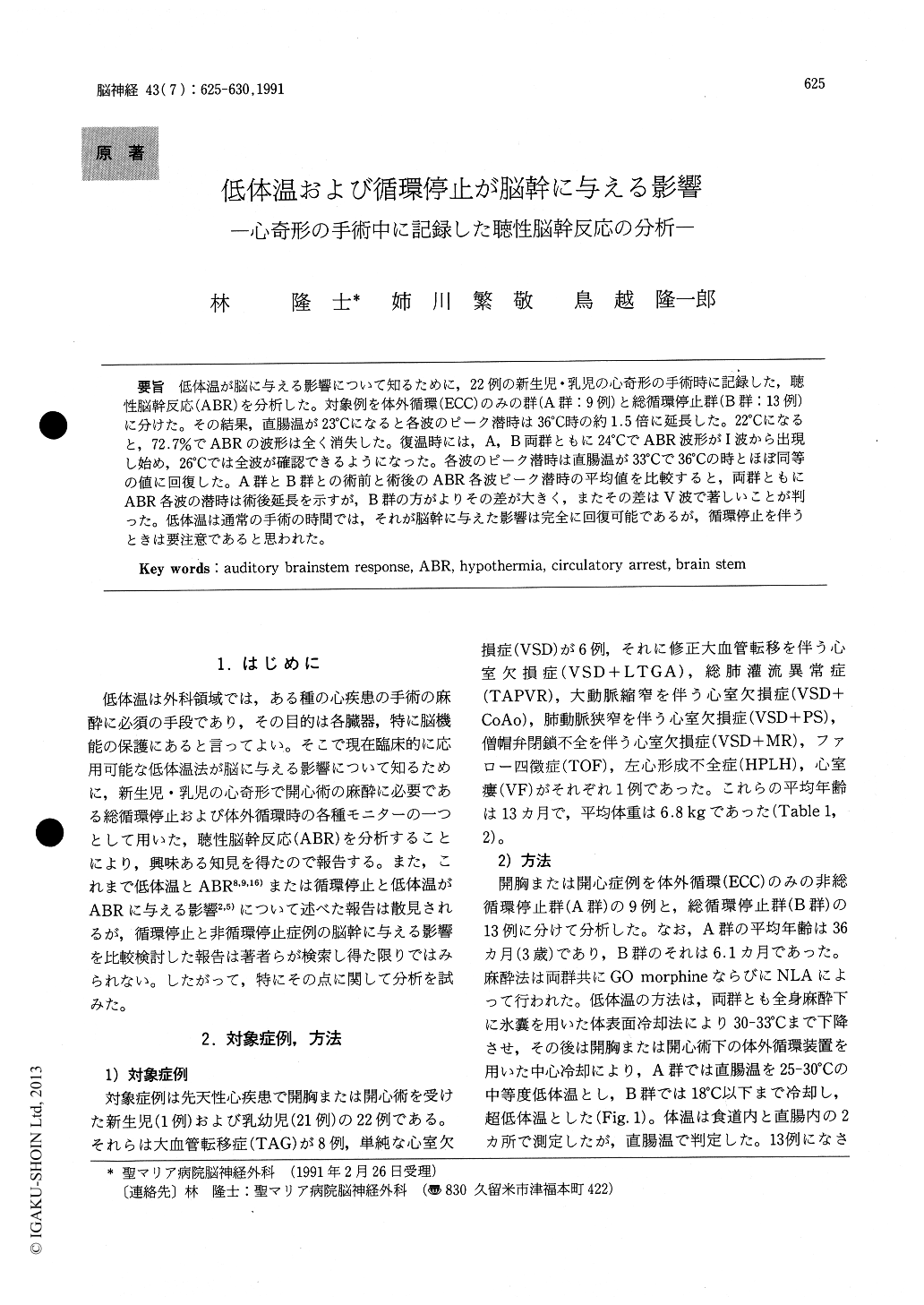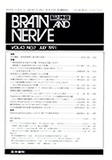Japanese
English
- 有料閲覧
- Abstract 文献概要
- 1ページ目 Look Inside
低体温が脳に与える影響について知るために,22例の新生児・乳児の心奇形の手術時に記録した,聴性脳幹反応(ABR)を分析した。対象例を体外循環(ECC)のみの群(A群:9例)と総循環停止群(B群:13例)に分けた。その結果,直腸温が23℃になると各波のピーク潜時は36℃時の約1.5倍に延長した。22℃になると,72.7%でABRの波形は全く消失した。復温時には,A,B両群ともに24℃でABR波形がI波から出現し始め,26℃では全波が確認できるようになった。各波のピーク潜時は直腸温が33℃で36℃の時とほぼ同等の値に回復した。A群とB群との術前と術後のABR各波ピーク潜時の平均値を比較すると,両群ともにABR各波の潜時は術後延長を示すが,B群の方がよりその差が大きく,またその差はV波で著しいことが判った。低体温は通常の手術の時間では,それが脳幹に与えた影響は完全に回復可能であるが,循環停止を伴うときは要注意であると思われた。
Twenty-two children were monitored by the audi-tory brainstem respose (ABR) during the open chest and/or open heart surgery for cardiac anom-alies under the extracorporeal circulation (ECC) with moderate to deep hypothermia. These patients were devided into two groups, namely, the ECC only group (group A : 9 cases) and the total circulatory arrest (TCA) group (group B : 13 cases). The mean age of group A was 36 months and group B was 6. 1 months. In group A, moderate hypothermia was conducted with the rectal temperature ranging from 25 ℃ to 30 ℃, and in group B profound hypothermia was conducted lowering the temperature to 18 ℃. The ABR recorded at the following points, namely ; before inducing anesthesia, before lowering the body temperatures, during the cooling process, at the time of TCA, and during the rewarming proc-ess. Accompanying the decrease in body tempera-ture the peak latency of waves I, III and V were markedly prolonged. When the rectal temperature fell to 23℃, the peak latency of each wave was prolonged to about 150% of their precooling values at 36℃. When it fell to 22℃, the ABR disappeared entirely in 16 of 22 cases, and in remaining 6 cases, only I wave was detected. During rewarming, in both the A and B groups, at 24℃, the wave of ABR started to reappear beginning with I waves, and on reaching 26 ℃, I, III and V waves from became detectable. The peak latency of all waves at a rectal temperature of 33 ℃ recovered to almost the same values as these at 36 ℃. The latency of ABR in both groups prolonged at the time of postoperation, and the difference was greater in group B, and also, the difference was marked in regard to V waves. From those resulsts, during the time period usually required for an operation, the hypothermiac effect on the brainstem is no problem but when it is accompanied with the circuratory arrest, careful attension should be required.

Copyright © 1991, Igaku-Shoin Ltd. All rights reserved.


